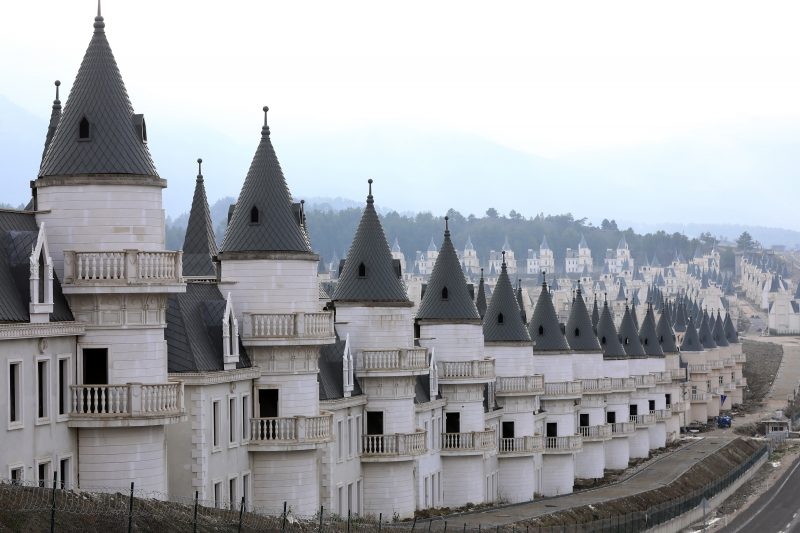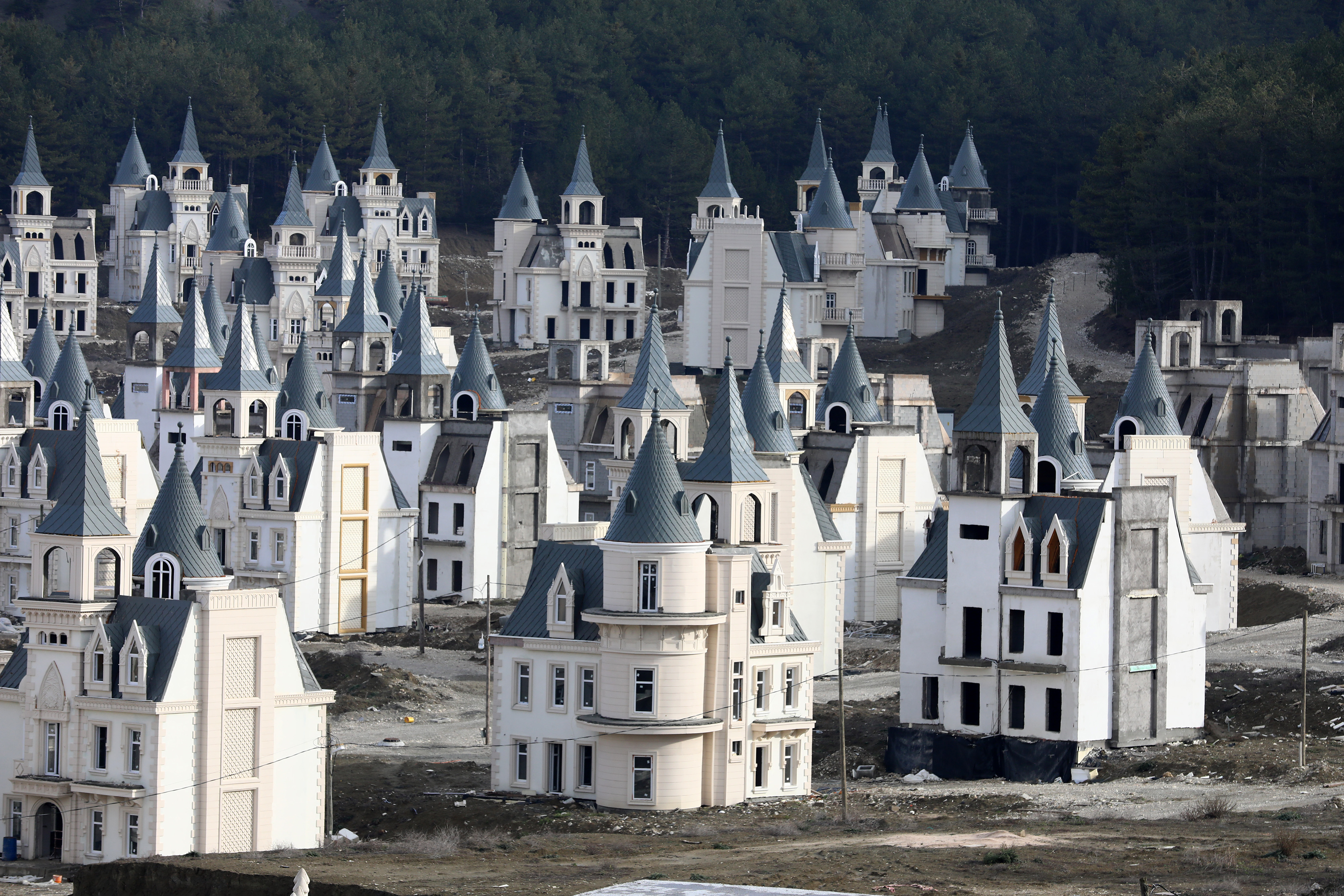- The Burj Al Babas in Turkey was designed as a luxury community for foreign buyers.
- Its developers intended for local hot springs to heat each home, claiming that the water has healing properties.
- As Turkey experiences an economic downturn, the project’s developers have filed for bankruptcy protection, and buyers have backed out of their purchases.
- The nation’s castle-like homes now sit empty in the northwestern region.
From far away, the Burj Al Babas could be confused for a diorama of miniature villas. The homes all look the same, their blue-grey steeples and Gothic fixtures calling to mind the castles in Disney films.
When the project first began in 2014, its developer, the Sarot Group, hoped the luxury aesthetic would appeal to wealthy foreign buyers. Now the homes sit empty at the base of Turkey’s northwestern mountains.
Read more: The eeriest abandoned place in every state
Though there’s still money left in its $200 million budget, the Sarot Group has already sought bankruptcy protection after buyers failed to come up with the money for the properties.
The problem isn't unique to Turkey. Around the world, cities, such as New York, Las Vegas, Tokyo, and Burgos, Spain, are riddled with abandoned properties. But none are quite as eerie as the Burj Al Babas' empty villas, which stand as symbols of the nation's economic plight.
Take a look at the ghostly spectacle below.
The villas are located near the small town of Mudurnu in Turkey's northwestern region.

The region's hot springs provide enough water to heat the homes, the Sarot Group's chief executive officer, Mezher Yerdelen, told the New York Times.
"You can drink the waters, and it cures stomach ailments and kidney stones," Yerdelen told the Times. "If you bathe in it, it heals skin problems, rheumatism, and slipped disks."
Buyers can purchase the homes for $400,000 to $500,000 each — a price tag that caters to a wealthier Middle Eastern clientele.

Homeowners can choose from three different layouts. The villas will have a jacuzzi on each level, and residents have the option to install an elevator and indoor pool.
Of the more than 732 villas, about 350 were sold to Arab investors. Many of the sales have since fallen through.

Turkish President Recep Tayyip Erdogan recently offered citizenship to foreigners who own a property worth more than $250,000 for three years.
Buyers were likely impacted by the decline in oil prices.

The unsold castles could be divided into rented apartments or timeshares, the developers told the New York Times.
The fall of the Turkish economy is also to blame.

In October 2018, Turkey's inflation rate reached 25% - the highest it's been in 15 years. This jump was largely influenced by the decline of the nation's currency, the lira.
In September, Turkey's central bank raised interest rates in an attempt to counter these issues.
And Turkey has also been racked by political turmoil.

Economic analysts have criticized Erdogan's excessive spending on infrastructure projects, which required borrowing from foreign banks.
As the value of the lira plummeted, foreign investors began to pull out of the projects, which led to a downturn in the construction industry.
As the country heads toward a recession, the Burj Al Babas' architect remains hopeful that the development will open by October 2019.

The Turkish government is developing high-speed rail lines between Istanbul and Ankara, which could amplify interest in the northwestern region.

